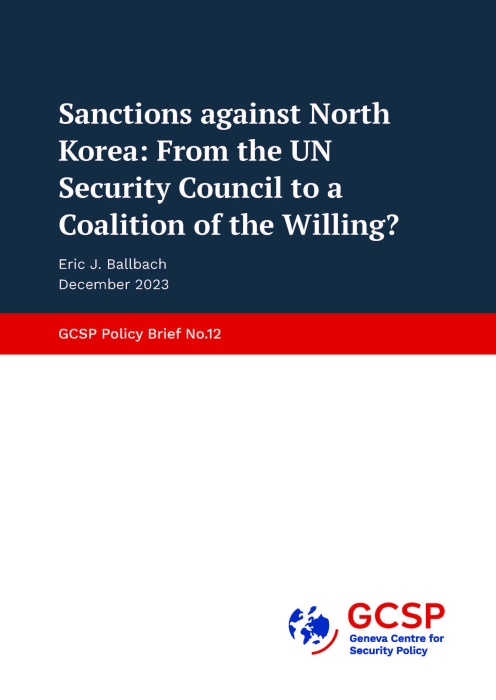Sanctions against North Korea: From the UN Security Council to a Coalition of the Willing?
Introduction
Since the breakdown in 2019 of high-level diplomacy with North Korea (officially the Democratic People's Republic of Korea, or DPRK) and as a result of the fiveyear military modernisation plan that the country announced in January 2021, it has steadily expanded its military capabilities. It has not only conducted an unprecedent number of missile tests and in the process introduced a range of new missile technologies, but recently also introduced a new law that makes significant changes to its nuclear doctrine.
At the same time, the rapidly changing geopolitical context, most vividly exemplified by the intensifying US-China rivalry and Russia’s war against Ukraine, not only makes a resolution of the international community’s conflict with North Korea over its nuclear weapons and military capabilities even less likely, but strains the central mechanism used by the international community to deal with North Korea during the past years, i.e. the imposition of sanctions through the UN Security Council (UNSC). Despite the unprecedented quantitative and qualitative progress in North Korea’s military build-up, the UNSC has imposed no new sanctions on the country since 2017.
This Policy Brief examines why and how the UNSC stopped being the central theatre for imposing sanctions on North Korea and highlights the security challenges that result from this shift. Next, it addresses the most crucial implications of these security challenges. The analysis includes a discussion of the central actors driving new decisions to impose sanctions on North Korea outside the framework of the UNSC, and how these sanctions target one of the country’s most crucial sanctions-evasion mechanisms: its cybercrime programme. Based on this analysis, the brief offers policy recommendations that underscore the value of recent coordination initiatives in the field of sanctions and discusses what more needs to be done.
Disclaimer: The views, information and opinions expressed in this publication are the author’s own and do not necessarily reflect those of the GCSP or the members of its Foundation Council. The GCSP is not responsible for the accuracy of the information.


